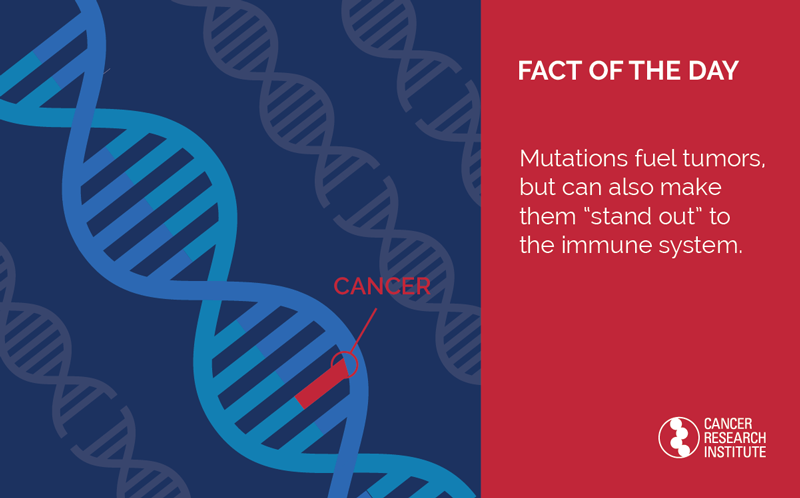
Mutations make tumors “stand out” to the immune system.
Previously, we discussed how viruses can cause cancer by de-regulating the normal activity of our genes. In addition to viruses, our genes can also become de-stabilized as a result of random mutations. These DNA mutations can be caused by environmental factors such as ultraviolet (UV) light and cigarette smoke, and can also happen as a result of accidental mistakes during cell division. These mutations—some of which produce abnormal, mutated proteins—can promote the growth and survival of cancer in a number of ways.
Fortunately, these mutated tumor proteins also distinguish cancer cells from healthy cells (because of their “foreign” appearance) and allow immune cells to recognize and respond to tumors. Immunotherapies have also been designed to take advantage of this fact. In fact, patients whose tumors have very high levels of mutations are much more likely to respond to a type of immunotherapy called checkpoint inhibition (more on this later).
The following CRI-funded scientists are exploring how exactly these the immune system recognizes these mutations and generates responses against them, as well as how novel immunotherapy approaches might be able to enhance outcomes in patients:
Image credit: Cancer Research Institute